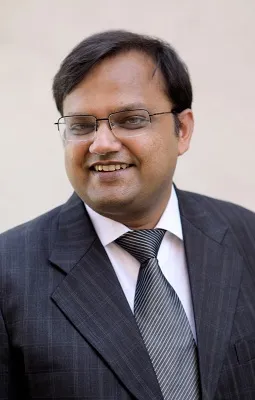A walk through the life of a man who built 3 businesses, in different sectors targeting different markets

1998 wasn’t the time when a graduate in India thought of starting up straight out of college. There are a very few who dared to do this and Rajul Garg is one of them. A 1998 IIT Delhi graduate, Rajul started up Pine Labs, a company that engineered large scale smart card based payment and loyalty solutions for Indian Petro companies.
A typical started-out-of-a-garage company, Pine Labs went on to raise money from Sequoia Capital and proved to be a successful company. Rajul exited the company in 2003 but in the meanwhile had gone on to co-found GlobalLogic, a global services company. More of a structured and well thought out company, GlobalLogic had raised money from foreign investors and 2005 onwards, Rajul was the man who grew the India team to 6000+ employees and $250+ million in revenues.
Rajul then went on the venture capital side but within a year, came back on the other side of the table to co-found the Sunstone Business School which he is still building along with Dinesh Singh. Rajul also angel invests and I had a chance to get in touch with him to learn from him a few key things about building a business.
The people angle
Successful entrepreneurs, investors, everyone stresses on the importance of good teams. But how does one do that? Rajul has done it via both ways- the garage startup style and going via the well-funded way. “While growing a company, second line of management is important but to reach there, it is crucial to get the first 10-15 people right and this doesn’t happen by delegating hiring,” says Rajul.
Even at this stage Eric Schmidt and Larry Page have an interaction with any person that is hired and a huge part of a founders role is just to hire. “Trying too hard to setup a culture doesn’t work. Swanky offices, fancy toys in the offices, etc are good perks but this is not really keeps the employees going. And if it does, you haven’t hired right,” says Rajul.
The crux is to lead by example, have things very transparent, and things fall in place.
When to take the plunge?
Rajul has taken some very key decisions in his life relating to making an exit from a company or shifting directions. “I’ve always looked at myself and the company as separate entities. One shouldn’t take it too personally. A decision has to be solely based on what is good for the business,” he says. Getting a professional CEO (see Dhingana case), co-founder split (see the case of Knowlarity), etc. are natural processes in a company functioning. And these decisions need to be made rationally.
Entrepreneurship v/s Investing
Rajul has had the experience of raising funds as an entrepreneur and investing as a VC. “I built two companies and went on the VC side briefly but soon realized that entrepreneurship is what I’m made for. It is much more fun,” he says.
Pine Labs managed to raise money from Sequoia but that was much after Rajul had exited from the company. His first experience of fund raising came in with GlobalLogic which raised money from US investors and then for Sunstone which took the unconventional route and raised capital from Spice’s venture capital arm.
“It’s very important to know what you’re raising for and how you budget time for it. The game is very different in the US and in India. Keep all the options open and take on an investors when there is a synergy,” says Rajul.
Currently building Sunstone business school, Rajul mentors a few young startups and has also angel invested in 4-5 companies. “There are many ways of investing and I prefer the one where you invest in one but stick to it for a long time,” he says.







